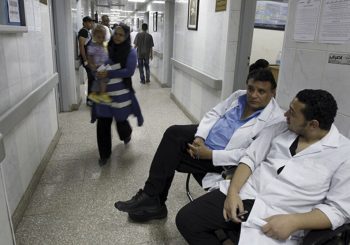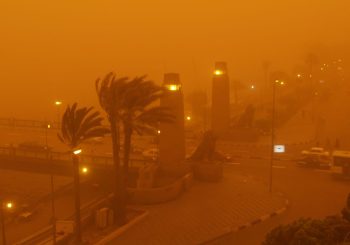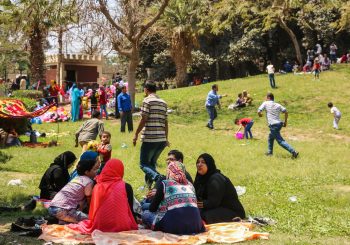To cope with soaring fuel prices and reduce exhaust fumes in the environment, a Syrian businessman living in Cairo recently came up with an out-of-the-box idea; he built what he calls a ‘smart’ tuk-tuk.
“Amid fuel price hikes, I thought about finding an alternative,” Ismail Abdel Hameed, the businessman behind the idea, told The Egyptian Gazette.
Abdel Hamid, who came to Egypt six years ago following the outbreak of the Syrian uprising-cum-civil war, wants to modernize the country’s tuk-tuks with his red-colored, four-wheel, environmentally-friendly mini-car, while also reducing fuel consumption in face of the country’s recent fuel price hikes.
Last June, Egypt hiked fuel prices by up 50 percent to help meet the terms of a $US 12 billion loan agreement signed with the International Monetary Fund.
According to Minister of Petroleum Tarek El Mulla, prices of 92-octane petrol increased by more than 40 percent to LE 5 ($US 0.2767) from LE 3.5 per liter.
The price of diesel and 80-octane, the most commonly used fuel types, rose by more than 50 percent to LE 3.65 per litre from LE 2.35.
Abdel Hamid began working on his smart tuk-tuk idea last year with the help of a group of Egyptian and Syrian engineers. Now, one of these vehicles is roaming the streets of Sixth of October City, one of Cairo’s outlying desert cities.
Abdel Hamid hopes to one day open a factory where he can start producing the tuk-tuks on a larger scale.
He also plans to build vehicles which can be driven by people with special needs. “Fifty percent of the targeted vehicles will be allocated to people with special needs in order to create job opportunities for them,” Abdel Hamid said.
Data released by the World Health Organisation (WHO) suggests that people with disabilities represent approximately 10 percent of the Egyptian population, or about 8.5 million people.
According to the 34-year-old businessman, who is also mechanics savvy, the new, elegantly-designed tuk-tuk runs on electricity. A fully charged battery allows it to operate for 8-10 hours. In the future, he also hopes to provide the vehicles with air condition.
Further, Abdel Hamid and his team are planning to launch a mobile phone application with a GPS function. However, that, he said, depends on the Egyptian authorities agreeing to license the new vehicles and support such a project.
Abdel Hamid’s vehicle is currently on sale for LE 36, 000, cheaper than a regular tuk-tuk which costs about LE 38, 000. The three-wheeled vehicles, which have become common in both urban and rural areas in Egypt, are mostly imported from India and China.
Abdel Hamid’s mini-car has already caught the attention of some tuk-tuk drivers who have started asking about it.
“It looks good. It saves fuel, is more economical and practical than the normal one,” Sameh Farouk, a 25-year-old tuk-tuk driver, said. Farouk added that Abdel Hamid’s vehicle is also much safer than the ordinary tuk-tuks. “It has four wheels, has a door and glass windows – these features make the vehicle much safer.”
If Abdel Hamid’s wishes come true, soon, the new smart tuk-tuk may just as well become as popular as its original version – or even replace it.
This article was first published in The Egyptian Gazette.






Comments (0)